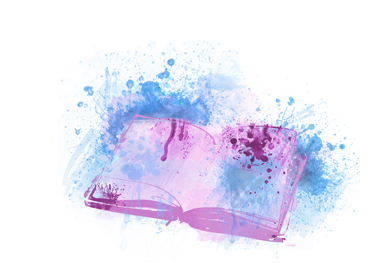Out Damn Past
Q.
Macbeth: Will all great Neptune’s ocean wash this blood Clean from my hand?
It might have happened to you.
Not the murderous schemes of Macbeth and his Lady, but the stumbling out of a situation that made you feel unclean, dirty, tainted, ashamed.
You might have been nothing more than a visitor, an unwitting witness to some unsavory acts. The setting might have been physically idyllic, yet you might have found yourself itching like there were bugs, toxic fumes, creepy branches. Be gone.
As soon as you escaped, you might have scrinched your forehead, closed your eyes, and tried to shake the image out of your head. You might have found yourself rushing to the sink, or whipping out the sanitizer to wash your hands of it all.
Lady Macbeth: Retire we to our chamber. A little water clears us of this deed: How easy it is then!
Soapy hands, rubbing and rubbing – are these physical attempts to excise the nastiness merely symbolic? Or can they actually help us erase unpleasant realities from our minds? Can we walk away and wash our hands of the whole disgusting mess?
.
A.
This wiping of the slate and swabbing away the past is something that renowned psychologist Norbert Schwartz studied in his University of Michigan Lab. And what did he find?
That time at the sink may not be wasted.
In studies with Spike W.S. Lee, Schwartz found that physical cleansing can unconsciously wipe away feelings of guilt, doubt, and shame.
Subjects thinking about their own past immoral acts were less troubled after rubbing their hands with antiseptic hand wipes. Others who had doubts after making a tough decision – ‘did I make the right choice? Sure! It was the Best Possible Choice’ – stopped over-justifying their final choice once they had doused their hands in sanitizer.
In another study with Alison Jing Xu and Rami Zwick, Schwartz found that subjects who experienced a bad luck gambling streak, felt cautious and discouraged. Those, however, who – thinking that they were evaluating organic soap – ‘washed the bad luck away’ with a good hand cleanse were more likely to take later gambling risks.
The poor subjects who could only evaluate the soap without actually trying it – and who, thus, were left with the ‘bad luck’ on their hands – were less willing to make risky moves in their subsequent gambling.
.
.
Doctor: What is it she does now? Look, how she rubs her hands.
Gentlewoman: It is an accustomed action with her, to seem thus washing her hands: I have known her continue in this a quarter of an hour.
Lady Macbeth: Yet here’s a spot.
There are, of course, no free swabs. Wipes take away the happy too.
If subjects washed their hands immediately after a positive experience, they felt less pleased. Those who were directed to wash their hands after a good luck gambling streak, worried that they had washed away the good fortune, and were less likely to risk in their next moves.
One must, of course, consider the short and the long-term. A good soapy session may offer some temporary relief from psychic disgust. As Lady Macbeth found, however, true, deep transgressions or scarring scenes are unlikely to stay away forever even after the most frantic scrubbing.
“Here’s the smell of the blood still. All the perfumes of Arabia will not sweeten this little hand.”
.
www.justcurious.ca
Header Art: Johann Heinrich Fussli. The Sleepwalking Lady Macbeth. 1784
Painting 2: Thomas Beech. Sarah Siddons and John Philip Kemble, in Macbeth. 1786









